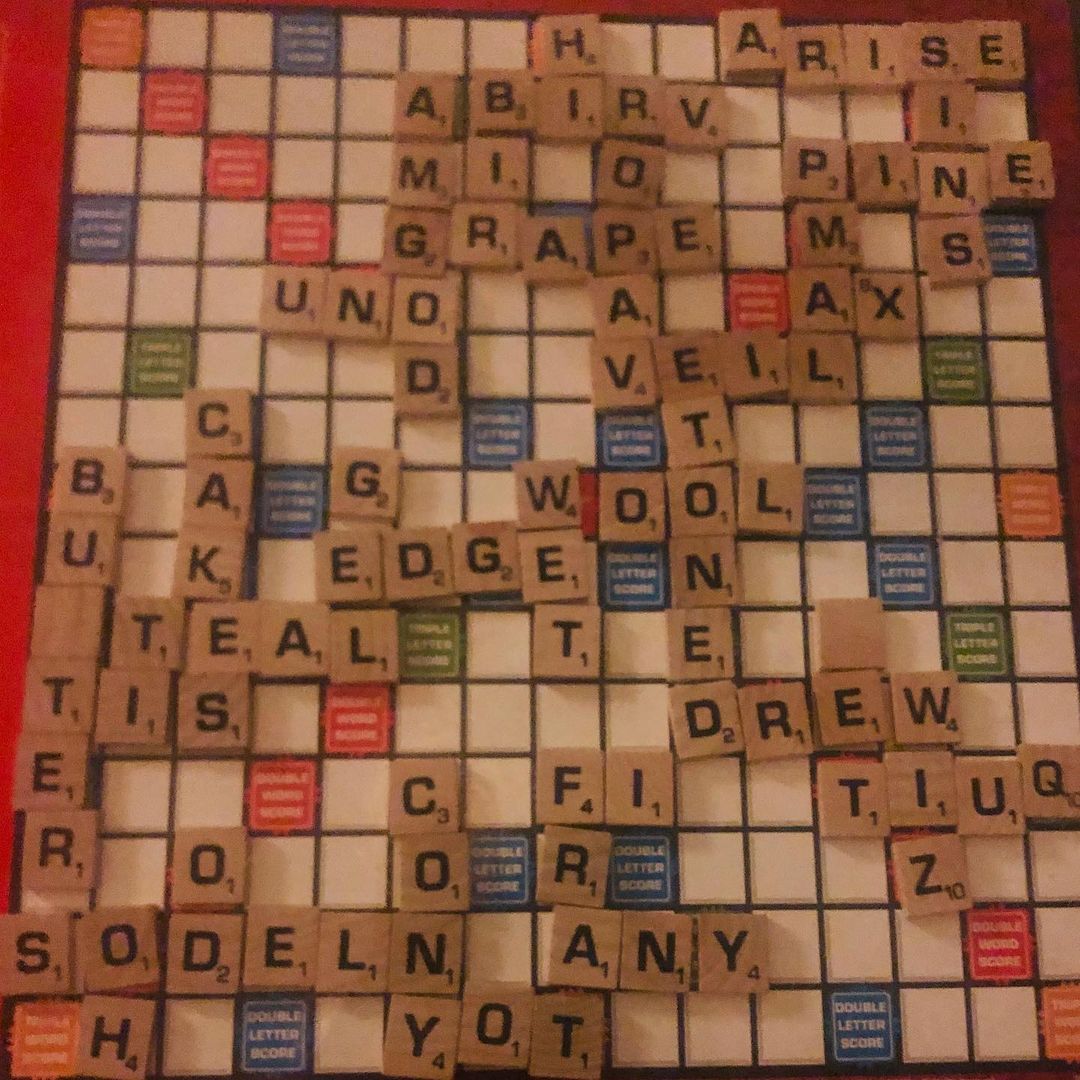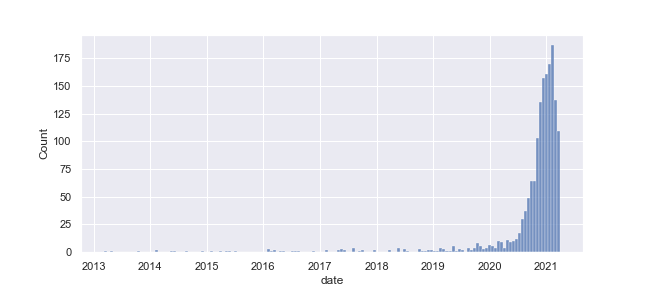Not them having a whole zoo—the rise of ironic "not"
Here’s the top comment on a recent Instagram post by Britney Spears:


If you’re the sort of person who would follow Britney Spears on Instagram your response may be a nonplussed And?
But if you belong to an older, less online demographic, then maybe attempting to parse this sentence left you with a bit of a headache.
This is just one example of a novel use of not which has been on my radar for a while. Below I’ve cut together some clips of other examples, so you can get a sense of what it sounds like when spoken aloud, and the contexts in which it appears (you may want to turn on closed captions):
What does it mean?
“Not X” as an expression of a speaker’s attitude toward X is not a new thing. For example:
[Alice draws the curtains] “Not another rainy day…”
[Billy hears a crashing sound and goes downstairs to investigate] “No! Not the Ming vase!”
These utterances express some combination of surprise and negative sentiment, ranging in degree from mild disappointment to horror (the difference being largely marked by intonation).
A defining feature of the novel use of not is that it adds a layer of irony to this equation. It expresses something like mock horror or playful incredulity. When Nene exclaims “Not a white refrigerator, honey!”, it’s not because the sight of the white fridge has her genuinely appalled. She’s just cheekily pointing out that it’s a bit déclassé.
In general, this “Not X” communicates a judgement that X is amusing and surprising.
When X is intended to be humourous, this can carry an approving tone (“Haha, good one”), as in this banter between Bob the Drag Queen and Aja:
(“Jan should have been Blac Chyna” is a joking reference to a memorable quote from Nina Bo’nina Brown in an earlier season of the show.)
On the other hand, it can also be used derisively (“X is risible and the person responsible ought to be embarrassed”). In a recent feud with Candace Owens, Cardi B used this technique in three (since-deleted) tweets, including:
Not candy doing a whole 13 minute video of this shit on IG .Deum i be making her waNna pull her pussy hairs out .🤣🤣😩😩😩😩🤣🤣🤣🤣🤣🤣😂🤣🤣😂🤣🤣😂🤣🤣[…]
Most instances fall between these extremes, somewhere in the region of playful ribbing. Including our Instagram comment:
Not me looking at this like a hidden clue from National Treasure
Which can be read as a very mildly self-deprecating remark along the lines of “Haha, can you believe I’m carefully parsing this Britney Spears Instagram post for hidden messages? I’m such a dork!”
How does it work?
In these “Not X” expressions, X generally belongs to one of two categories.
Gerund-participial complements—not X Y-ing Z
A striking feature of this novel “Not X” is that X can be a gerund-participial clause (in the nomenclature of CGEL), as in
Not Ed calling out Taylor like this
These are easily found on social media, but are difficult to find spoken aloud. (The supercut above has two examples at the end from YouTubers Mike’s Mic and Larray who incorporate influences from Stan Twitter into their speech).
It seems impossible to construct an expression of genuine shock or dismay in this way—even in cases where the subject of horror can’t be easily encapsulated in a noun phrase. For example, after looking at the receipt for a restaurant meal, it would be very strange for me to exclaim with genuine alarm:
Not that bottle of wine costing $100!
It’s interesting that an explicit subject is mandatory in these clauses. i.e. we don’t see examples like “Not having a shrine to Carly Rae Jepsen”. Perhaps because of the tendency to want to bracket not with the verb (as in “[Lacking] a shrine to Carly Rae Jepsen”).
Usually the subject of a gerund-participial clause can be in the genitive case (“She resented my noisily clicking my pen”), but this is associated with a more formal style, so it’s not surprising we don’t see examples like “Not his trying to blame you”.
Metalinguistic uses
The other main use of ironic “Not X” has X be a direct quote.
For example, on a Reddit forum dedicated to old-looking babies, someone posted a photo of their preternaturally cantankerous-looking infant with the title:
Everyone knows not to bother Sondra from Payroll during tax season.
Leading another user to comment:
Sometimes the material is explicitly wrapped in quotation marks (especially to avoid an ungrammatical/garden-path reading when X is not a noun phrase):
Nah y’all just want Rina to get attention so bad that you’ll invent theoretical negative attention. No one clutched their pearls, but maybe people turned off the tv lol.
Again, this metalinguistic pattern is not used when expressing genuine horror, e.g.:
Not “your car has been towed”!
(Aside: While the label ‘metalinguistic negation’ is commonly used for expressions like this, it may give a misleading impression. Just because X is a quote doesn’t mean that “Not X” is commenting on the surface form of X (what Geurts 1998 calls a “form denial”) rather than the content of X. For example, when Kandy proposes “a fun game to teach you how to listen” and Nene responds “Not teach, honey”, it does not suggest she would have been any less scornful if Kandy had instead suggested “a fun game to educate you on listening”.)
Who uses it?
Anecdotally, most of my exposure to this construction has been hearing it from drag queens, and seeing it in online spaces that skew young and gay.
But to get some actual data, I turned to Reddit, since comments there map to communities (“subreddits”), which, in many cases, have fairly predictable demographics.
I wrote a couple quick scripts to scrape all comments on Reddit beginning with a pattern like not (me|you|them) (thinking|taking|using|acting|trying). In total, I found about 1,600 such comments. A manual scan suggested precision was quite high.
Here are the subreddits with the greatest number of these comments:
| sub | count |
|---|---|
| SpoiledDragRace | 125 |
| popheads | 97 |
| rupaulsdragrace | 76 |
| thebachelor | 37 |
| memes | 32 |
| queensofleague | 29 |
| EDanonymemes | 28 |
| teenagers | 25 |
| ApplyingToCollege | 25 |
| popheadscirclejerk | 25 |
| BigBrother | 24 |
| rpdrcringe | 17 |
| AskReddit | 17 |
| RoyaleHigh_Roblox | 14 |
| RoyaleHighTrading | 10 |
(Full table here)
For the most part, this list is dominated by small-to-medium subreddits whose readership is especially gay, female, young, or some combination of the three.
Given the small absolute numbers involved, this is a somewhat noisy signal (though I did verify there weren’t any extremely prolific users distorting the data—no single author has more than 5 comments in the dataset.)
Is it on the rise?
The distribution of “Not X” Reddit comments over time is not dissimilar to the trajectory of $GME:

Here’s a zoomed in view from the beginning of 2020 until the end of March 2021 (with one bin per month):

It’s seen enormous growth over the last year, but judging by the dip in the last month, maybe it’s a trend that’s destined to burn out before becoming fully mainstream.
Where does it come from?
A lot of recently popular slang that has more or less entered the mainstream (shade, tea, beat, chile, go off…) has followed a familiar pipeline to get there, starting in AAVE (or more specific largely-Black linguistic communities, such as the ballroom scene), passing into gay slang and certain online communities (especially Stan Twitter and its progenitors), and eventually becoming commonplace enough to see use (or misuse) in publications as vanilla as People Magazine or the Washington Post.
In many cases, reality TV shows like RuPaul’s Drag Race and The Real Housewives of Atlanta, with their endlessly quotable, reaction-gif-able casts of Black women and queer artists, have played a significant role in exposing this slang to a wider audience.
Despite the outsized popularity of ironic not on Drag Race subreddits, it seems that the show itself has probably had a very marginal role in its popularization. I grepped the closed captions for just about every episode of Drag Race and was only able to find one occurrence in 2020, and a couple in 2021 one of which is included in the supercut at the top (Olivia Lux’s “not JVN all of a sudden”).
On the other hand, we find occurrences on The Real Housewives of Atlanta as early as 2013. And while the Reddit data isn’t especially indicative of use in Black communities (e.g. we don’t see subreddits like /r/BlackPeopleTwitter or /r/BlackLadies having lots of matching comments), Twitter tells a very different story.
Antedating
The construction seems to be absent from Reddit before around 2015. However, searching Twitter for similar patterns actually turns up many earlier results, going back as far as 2008. (Failure to find earlier instances from the first couple years of Twitter’s existence are explainable by the relatively tiny volume of tweets during this time. It therefore seems very plausible that this construction existed even before 2008.) Some examples:
@fabglance1 lmfaooooooo not the george washington LOL
— Baepriℓ 🦉♏️ (@owldara112) March 20, 2009
Kris won't be getting "Mother of the Year"! Lmao not jackin your daughter's wedding gifts! Using her waffle maker? Totally #reckless lmao
— chuck[ie] (@iGiveNoChuck) December 14, 2009
RT @PolishMePretty: Lmao not the locals in this mall talkin about "girl yeah the sigmas havin a prty tonight" => lmmfao! #dead
— hungbbq. (@dre__cole) December 17, 2010
More examples here.
As far as it’s possible to determine based on profiles, virtually all of these early tweeters seem to be Black, lending strong support to the idea of an AAVE origin.
Comparable constructions
“Not X” fits in nicely with other examples of what we might call ‘non-literal denial’ in English. Compare, for example:
Oh no they didn’t!
I know you didn’t just call me lazy.
He did not just do that.
In each case, the proposition being denied (e.g. that you called me lazy) is known to be true by all participants in the conversation. Grice’s maxim of quality says that we ought aim to make our contributions to the conversation true ones. Flouting this rule creates an implicature about the speaker’s attitude toward the proposition. Something like “I find X so shocking or unpleasant, that I will (performatively) persist in my belief in ¬X even in the face of clear evidence to the contrary”.
A less forceful version of the same pattern can be found in rhetorical questions like:
Did you really just say that?
Tips?
If you’re aware of any uses of this construction pre-2008, I’d love it if you’d shoot me an e-mail (colin@cs.toronto.edu) so I can update this post. I’d also be very interested in any existing writing on this construction. I tried searching, but it’s an exceptionally hard thing to google—the only item I found that directly addressed this was this UrbanDictionary entry from 2020.
Tagged: Linguistics